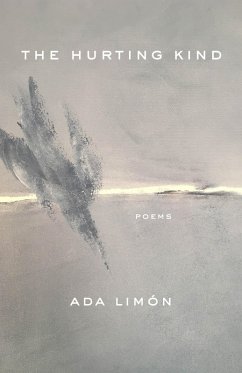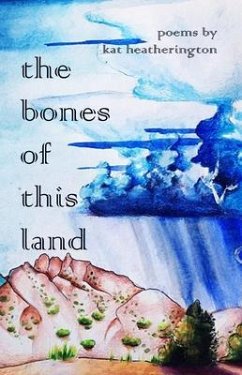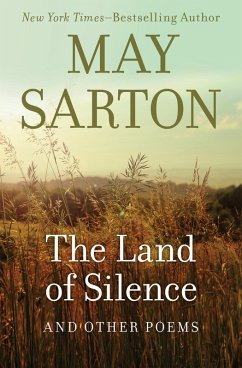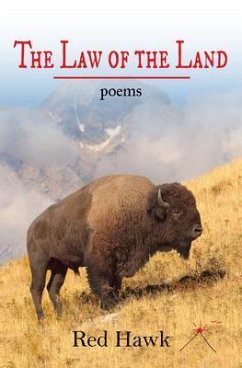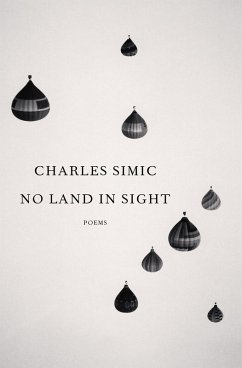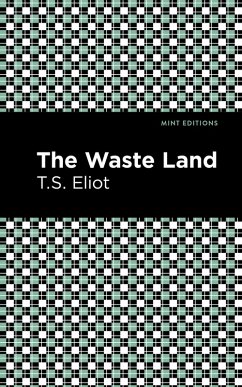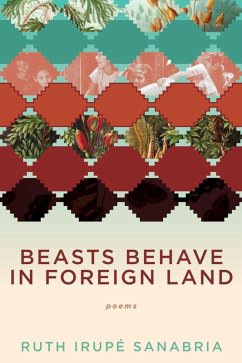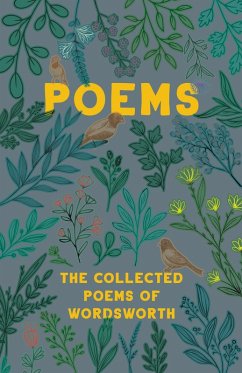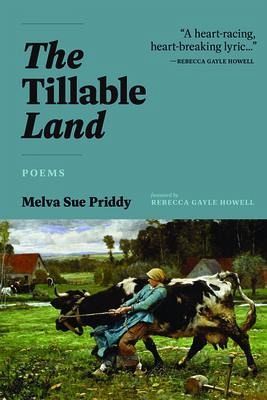
The Tillable Land (eBook, ePUB)
Versandkostenfrei!
Sofort per Download lieferbar
12,95 €
inkl. MwSt.
Weitere Ausgaben:

PAYBACK Punkte
6 °P sammeln!
"The Tillable Land is a heart-racing, heart-breaking lyric, a liberating coming of age for our stunted relationship to all that feeds us. I am changed by this book."-Rebecca Gayle Howell, Author of American Purgatory and Render/An Apocalypse and Poetry Editor, Oxford American"Melva Sue Priddy's The Tillable Land is a double helix of a book. One strand is a story about a family's life-dairy farming and growing tobacco, and also food for the table-beginning with an initial purchase of an unforgiving seventy-acre plot of land that had been deemed untillable. The other strand concerns the oldest d...
"The Tillable Land is a heart-racing, heart-breaking lyric, a liberating coming of age for our stunted relationship to all that feeds us. I am changed by this book."-Rebecca Gayle Howell, Author of American Purgatory and Render/An Apocalypse and Poetry Editor, Oxford American
"Melva Sue Priddy's The Tillable Land is a double helix of a book. One strand is a story about a family's life-dairy farming and growing tobacco, and also food for the table-beginning with an initial purchase of an unforgiving seventy-acre plot of land that had been deemed untillable. The other strand concerns the oldest daughter who, from a very young age, bears onerous responsibilities both inside and outside a house ruled by a father who believes that children-and women-should be seen and not heard. Because she 'could not be silent' as she matures, her life is marked by the 'tingling numbness' of this past. Water runs through this book: falling, flowing, and pooling, it turns manure and silt into slurry, washes off topsoil, threatens to burst pipes and hoses in freezing temperatures, opens sinkholes, and thins menstrual blood. Perhaps this is what throws into relief 'In the Adjoining Field,' a poem about fire: 'You have to burn off all the grease, / girl,' says a grandmother lighting a skillet hung with 'barbwire' on a maple; 'It's how you get it clean.' It's another metaphor for a book probing one woman's legacy of land and family, as she moves from her child-self onward to being a grandmother herself. Robert Frost's 'The land was ours before we were the land's' is a line that maps the trajectory of Melva Sue Priddy's teeming book. The Tillable Land, often not pretty, formally enacts a winding, unwinding, rewinding journey that leads one woman, buttressed by smarts and beauty, to salvage from memory a place written into her DNA."-Debra Kang Dean, author of Totem: America
"'The farm raged with run-down fences,' Melva Sue Priddy tells us early on in The Tillable Land, and 'the family had no such boundaries.' The poet sets those boundaries now, by chronicling a childhood where her father required his small children to do work they had neither the size nor strength to perform. Fear adrenalized her, and at age five, she could drive a diesel tractor by standing on the pedals. She lived on 'land that god clothed / with rocks' where '[s]ome of those rocks [were her] bones.' Priddy makes brilliant use of the repetitive, braiding form of the villanelle to convey the relentless cycles of farm work. But somehow, amid this punishing labor, 'another god spoke with [her]...and words warm songed through [her] veins.' She never let go of that singing, and now she offers it to us. The next-to-last poem in this stunning collection finds Priddy at the Garden Center where she tells us, 'Today I get what I want.' Hallelujah!"-George Ella Lyon, Kentucky Poet Laureate, 2015-2016, author of Back to the Light
"Melva Sue Priddy's The Tillable Land is a double helix of a book. One strand is a story about a family's life-dairy farming and growing tobacco, and also food for the table-beginning with an initial purchase of an unforgiving seventy-acre plot of land that had been deemed untillable. The other strand concerns the oldest daughter who, from a very young age, bears onerous responsibilities both inside and outside a house ruled by a father who believes that children-and women-should be seen and not heard. Because she 'could not be silent' as she matures, her life is marked by the 'tingling numbness' of this past. Water runs through this book: falling, flowing, and pooling, it turns manure and silt into slurry, washes off topsoil, threatens to burst pipes and hoses in freezing temperatures, opens sinkholes, and thins menstrual blood. Perhaps this is what throws into relief 'In the Adjoining Field,' a poem about fire: 'You have to burn off all the grease, / girl,' says a grandmother lighting a skillet hung with 'barbwire' on a maple; 'It's how you get it clean.' It's another metaphor for a book probing one woman's legacy of land and family, as she moves from her child-self onward to being a grandmother herself. Robert Frost's 'The land was ours before we were the land's' is a line that maps the trajectory of Melva Sue Priddy's teeming book. The Tillable Land, often not pretty, formally enacts a winding, unwinding, rewinding journey that leads one woman, buttressed by smarts and beauty, to salvage from memory a place written into her DNA."-Debra Kang Dean, author of Totem: America
"'The farm raged with run-down fences,' Melva Sue Priddy tells us early on in The Tillable Land, and 'the family had no such boundaries.' The poet sets those boundaries now, by chronicling a childhood where her father required his small children to do work they had neither the size nor strength to perform. Fear adrenalized her, and at age five, she could drive a diesel tractor by standing on the pedals. She lived on 'land that god clothed / with rocks' where '[s]ome of those rocks [were her] bones.' Priddy makes brilliant use of the repetitive, braiding form of the villanelle to convey the relentless cycles of farm work. But somehow, amid this punishing labor, 'another god spoke with [her]...and words warm songed through [her] veins.' She never let go of that singing, and now she offers it to us. The next-to-last poem in this stunning collection finds Priddy at the Garden Center where she tells us, 'Today I get what I want.' Hallelujah!"-George Ella Lyon, Kentucky Poet Laureate, 2015-2016, author of Back to the Light
Dieser Download kann aus rechtlichen Gründen nur mit Rechnungsadresse in A, D ausgeliefert werden.




